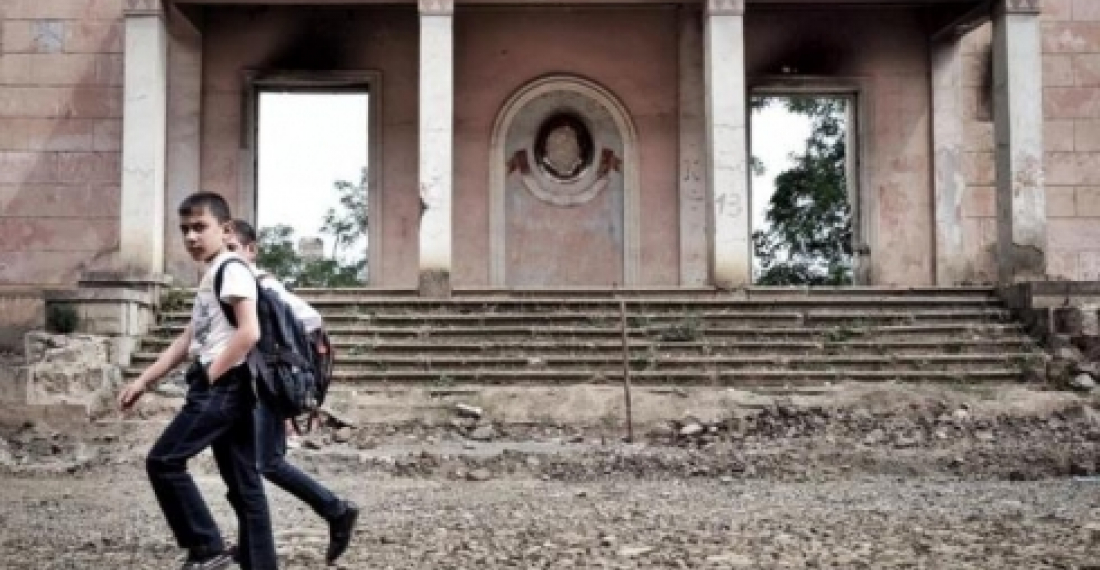There could hardly be a location that evokes more emotion and divisive views, when reflecting on the Karabakh conflict and its aftermath, than the town of Shusha, or Shushi as it is known in Armenian.
Whilst the majority of the population in Nagorno-Karabakh in the late 1980s was mainly Armenian, the majority of the population in Shusha were overwhelmingly Azerbaijanis. When the conflict started Shusha, with its dominating heights over the main Armenian town of Stepanakert, became the focal point of some very heavy fighting. Eventually Shusha fell to Armenian forces, and its entire Azerbaijani population was displaced. Most of the town lay in ruin. In many ways it became a ghost town, but eventually the small Armenian population grew, as others came in from elsewhere.
For the displaced Azerbaijanis Shusha remains home, and they yearn to go back, the elder ones among them often reminiscing on the old days with much nostalgia. For those who live in Shusha today, it is home and they prefer to call it Shushi. They are trying their best to put the past behind them and to look forward by developing a normal life for their community.
This week they were welcoming international guests. Among them was the Mayor of Bourg-Les-Valence in France, Marlene Mourier, who was visiting the town in the framework of the "French Days in Artsakh" festival. Shushi and Bourg-Les-Valence last October signed a declaration of friendship whose goal is to promote educational, cultural, sport and trade projects. The municipality of Bourg-Les-Valence will organise events dedicated to Karabakh soon, the Mayor said.
All this of course upsets the Government of Azerbaijan who has slammed the agreement and will now put the Mayor on its black-list for visiting Nagorno-Karabakh. But Madam Mourier said that she was not worried about this. On Saturday, the Mayor, together with other VIP visitors from France, accompanied the President of the self-declared Nagorno-Karabakh Republic, (NKR) Bako Sahakyan in a solemn ceremony at the opening of a vocational school in the town. In a speech, Mr Sahakyan underlined that such institutions were needed and would help prepare qualified specialist using a European experience in this sector.
According to the last census conducted by the NKR authorities the present population of Shusha/i is 4,100, although this figure may also be slightly inflated. But far away from the town there are still many other thousands of Azerbaijanis who still call Shusha home. Often they ask if they will ever return. In some way their ghosts still haunt Shusha. A large part of the town remains destroyed and empty. The Italian photo journalist Roberto Travan in his photo-essay for the Italian newspaper La Stampa recently recorded the level of destruction and abandonment
If ever there was a settlement of the Nagorno-Karabakh conflict Shusha/i would be one of the more difficult issues to be resolved. Its strategic position will continue to be a particularly sensitive matter for both sides.
The destiny of Shusha, like that of the rest of the Karabakh conflict, cannot be based simply on political expediency. At heart must the welfare of the people caught in its tragedy, and a solution that will ensure that the past will not be repeated.
Source: This is a commentary prepared by commonspace.eu, with additional reporting from La Stampa (Italy), News.am, and
Photo: The theatre in Shusha was destroyed during the fighting in the early 1990s. It remains in ruins. Two Armenian children pass the building on their daily walk to school. (Picture courtesy of Roberto Travan/ La Stampa).







